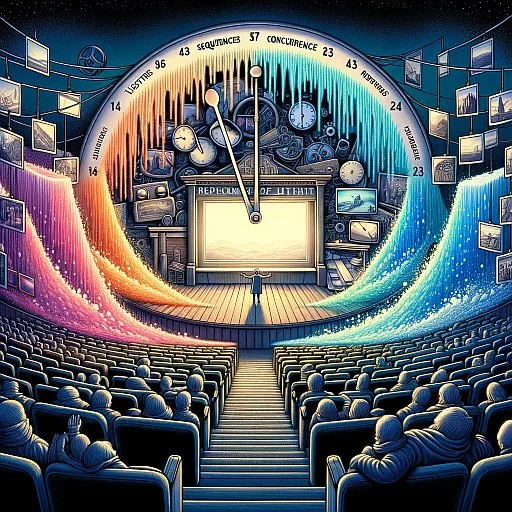Toward unstoppable chronostasis
Like the counterweight of a metronome
creeping in,
Flashes of life splash through my days.
“Sequences.
Recurrences.
Infinitesimals of existence multiplied like bacteria.
Sequences.
Recurrences.
Restless timeless frames.
Snapshots hung up like old rags,
In the darkness of an old score.
Sequences.
Breathing. Continuously.
Recurrences.
Will that breath of air always be the same?
Will it be the same sucking of a winter’s breath?
Sequences.
Straight in front of me.
Always straight.
Always.
In the cinema of a small town,
(in prime time), they finally show my life.
Recurrences.
Thousand times,
1,000 frames.
Sequences.
An infinity
millimetrically spaced
By infinity.
And here I am,
Who knows,
hidden (like an apostrophe) between the credits.”
…
Between the last chime
And perhaps another note:
The interminable monologue
Of a thunderous silence.
Deposited for legal protection with Patamu: certificate
Video
A brief note on social alienation
Social alienation, a concept deeply explored through philosophical and sociological lenses, delves into the sense of isolation and detachment individuals can experience in society. From a philosophical perspective, thinkers such as Karl Marx and Jean-Paul Sartre have highlighted the impact of capitalism and existentialism on social alienation, emphasizing how individuals can feel disconnected from themselves and others because of social structures and norms.

Sociologically, theorists such as Emile Durkheim and Max Weber examined social alienation in the context of modernity and bureaucracy. Durkheim focused on the breakdown of social ties and solidarity in industrial societies. At the same time, Weber discussed how rationalization and specialization could lead to a sense of meaninglessness and disconnection in the lives of individuals.
Overall, social alienation raises important questions about the nature of human relationships, identity, and the impact of social forces on individual well-being. By understanding social alienation from both philosophical and sociological perspectives, we can strive to create a more inclusive and empathic society that values human connection and authenticity.
If you like this poem, you can always donate to support my activity! One coffee is enough!


